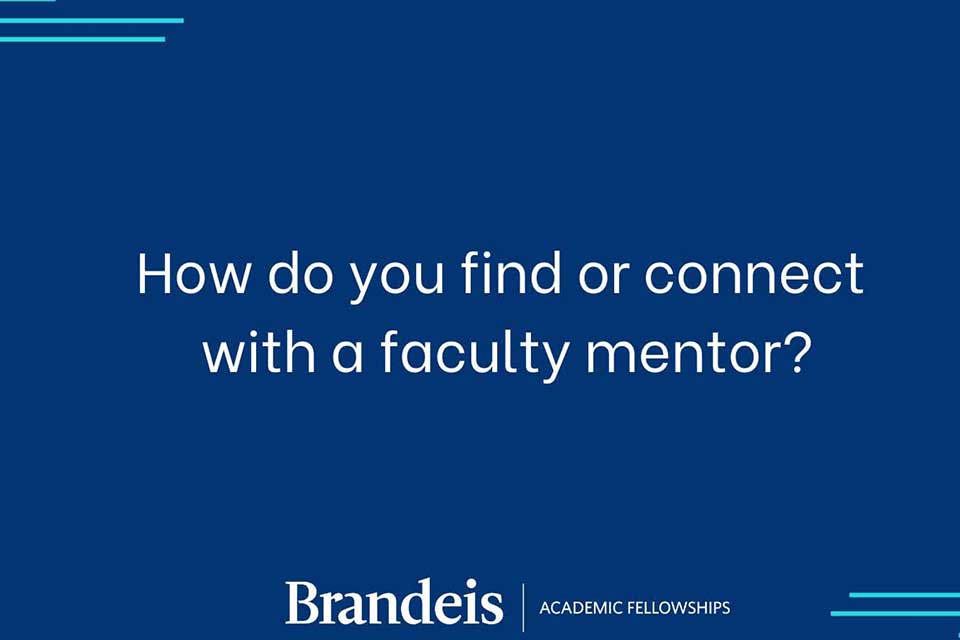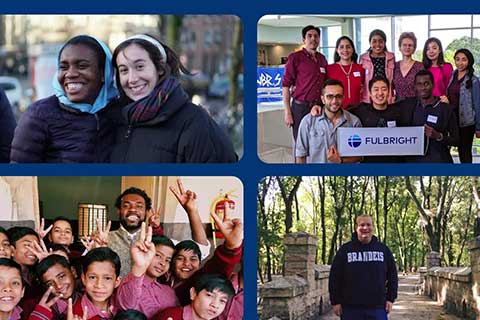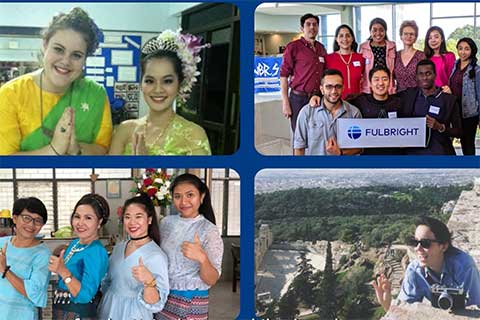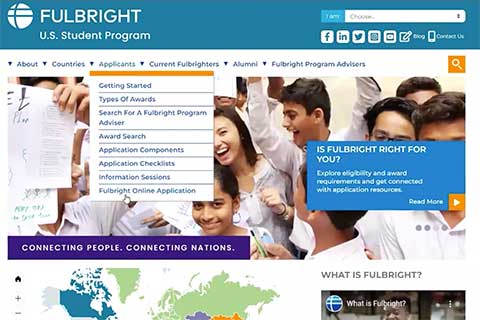Getting Started
It's never too early to investigate what fellowship opportunities are available to you! Start by setting up an individual appointment with Meredith or Elizabeth, as well as by seeking conversations with your faculty and advisors. As you navigate the process, we are here to offer support and resources through each stage of the process.
Fulbright Resource Videos
Frequently Asked Questions
Expand All
It's never too early to investigate what fellowship opportunities are available to you! Start by setting up an individual appointment with Meredith or Elizabeth, as well as by seeking conversations with your faculty and advisors. Fellowships span the disciplines, encompassing all areas of study whether you are a budding economist, biologist, novelist, artist, or historian. Taking some small classes and building relationships with your professors are also two excellent ways to "begin" on the path of doing more independent work. And as early as the spring of your first year, you can apply for Brandeis programs such as the Schiff Fellowship or the Provost's Undergraduate Research Fund (URF).
The best first step is to meet with Meredith or Elizabeth. We can help you think through your interests and goals, and tell you about various fellowship opportunities that may be a match for you. Thinking about what matters to you and why can be especially helpful, and so we're likely to ask you a lot of questions! Depending on your interests, we might ask you to might reflect on:
-
What are your academic strengths and passions?
-
Which of your academic achievements have given you the most satisfaction?
-
Which professors know you the best, and what do you think they might say about you in a letter of recommendation?
-
How would studying abroad enhance your interest in and knowledge of your area of study?
-
What graduate degree do you think would be most interesting to you to pursue, or most helpful in achieving your career goals?
-
How do you define leadership? In what ways do you consider yourself a leader?
-
How do you define service to others? What is social justice to you? Does it affect your life directly, and how so?
-
How engaged are you in current events and debates? Where do you get your news? What are a few key issues you know very well?
-
What else are you passionate about in life? Are there cultural interests, hobbies, or dreams you would love to pursue?
The best applications are a result of many, many drafts and lots of feedback from multiple sources. Also, because a campus endorsement is a required part of most fellowships, we need to allow time to have faculty and staff members review your essays in preparation for your campus interview.
For many fellowships, you must submit a complete draft of your application to the Brandeis committee at the time of the Brandeis deadline in order to go through the university process.
For example, the national Fulbright deadline is in early October, but in order to apply through Brandeis, we ask that you submit your Intent-to-Apply form by July 1st and a complete draft of your application in late August, which allows us enough time to read and reread your application, provide lots of detailed feedback, offer you a substantive interview with even more feedback, and plenty of time to revise your application so that by the final national deadline it represents your absolute best work. Trust us - the process really works!
This varies by fellowship. Certain fellowships have specific cut-offs, like the Marshall Scholarship, which requires a minimum 3.7 GPA in order to apply. The GPA does not tell the whole story, however, and most scholarships and fellowships refuse to set a specific benchmark. When reviewing your credentials, the scholarship committees will take into account the depth and variety of your course load, your preparation for what you are proposing to do with your fellowship, your extracurricular activities and leadership, and the degree of support from your recommenders.
In addition to demonstrated academic achievement, many grant committees are looking for students who also exhibit significant leadership qualities and who will clearly continue to display such traits. A deep commitment to public and community service, longstanding participation in the arts or athletics, the ability to relate your goals to the world around you: these activities and interests and others can be important in your application, depending on the mission of the institution funding the fellowship. It is not enough to list activities, however; your application should communicate how you have made a difference in whatever arenas you have chosen to dedicate your time.
In general, fellowship selection committees are composed of a combination of academics (scientists, humanists, social scientists), artists and writers, as well as leaders from the public sector. The agencies strive for a diverse group of selection committee members. In some cases, you will be sent a list of the members of your interview committee prior to your interview.
The reality is, these are competitive opportunities and a lot of amazing, talented, hard-working applicants will not be selected. And yet, there is so much to be gained in the process of applying!
Previous applicants report having gained a clearer sense of purpose, improved writing skills, stronger relationships with faculty mentors, a more detailed understanding of the career path they hope to pursue, and more. Many, many fellowship applicants have used their fellowship essays as the basis of their graduate school applications, and while they didn't win the fellowship, they got into their desired graduate program and credit the fellowship application process with enabling them to submit stronger graduate school applications. In some cases, fellowship applicants re-apply the following year for the same fellowship and are accepted the second time around. And, of course, some people DO win the award on their first try!





